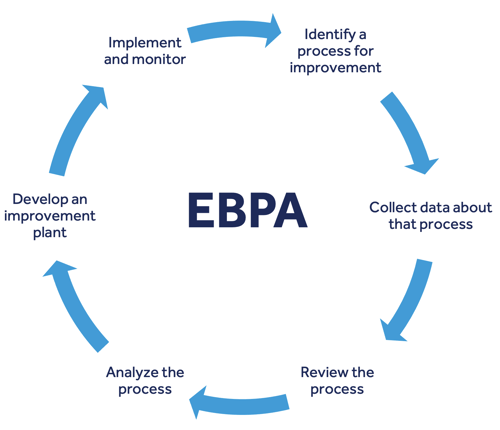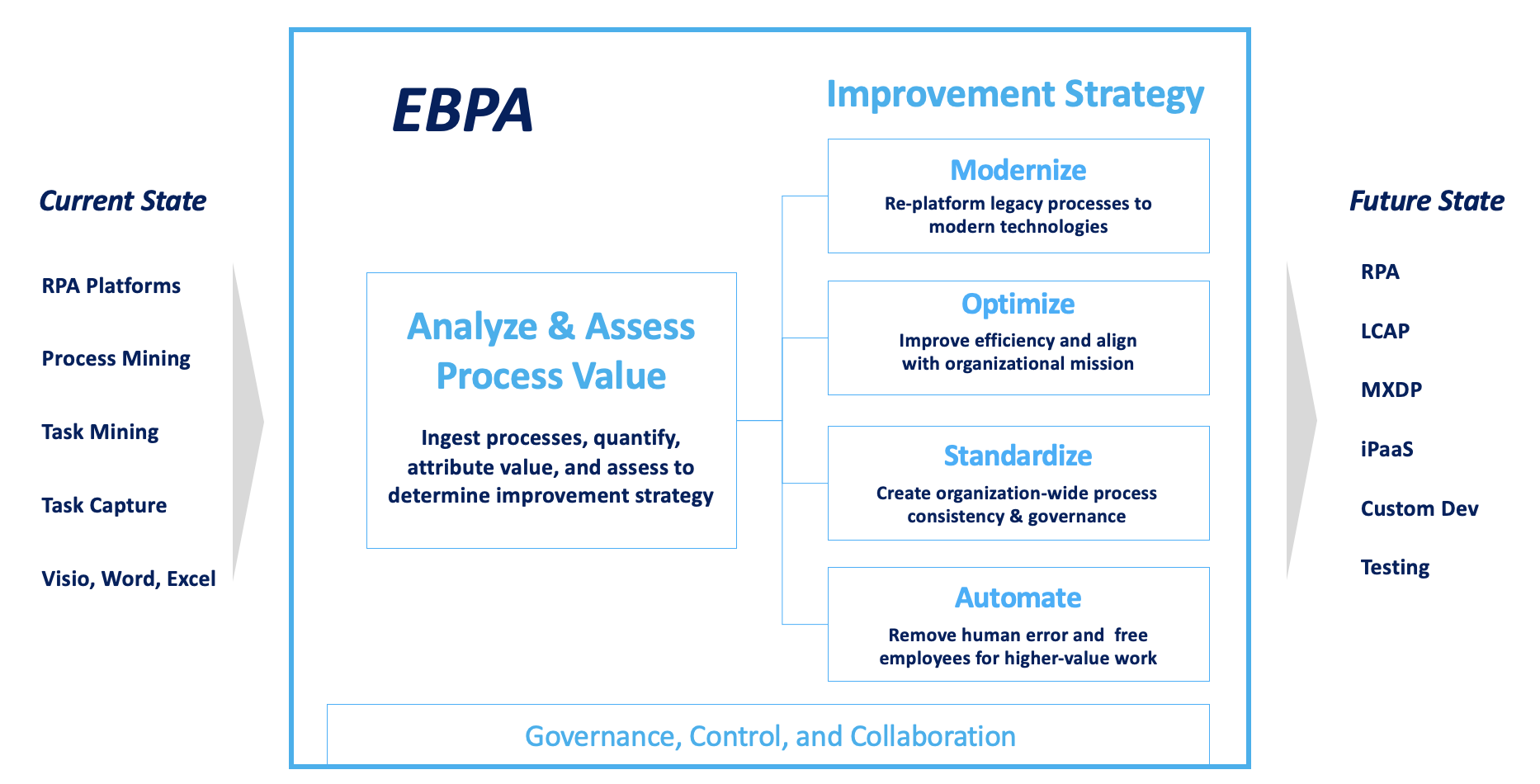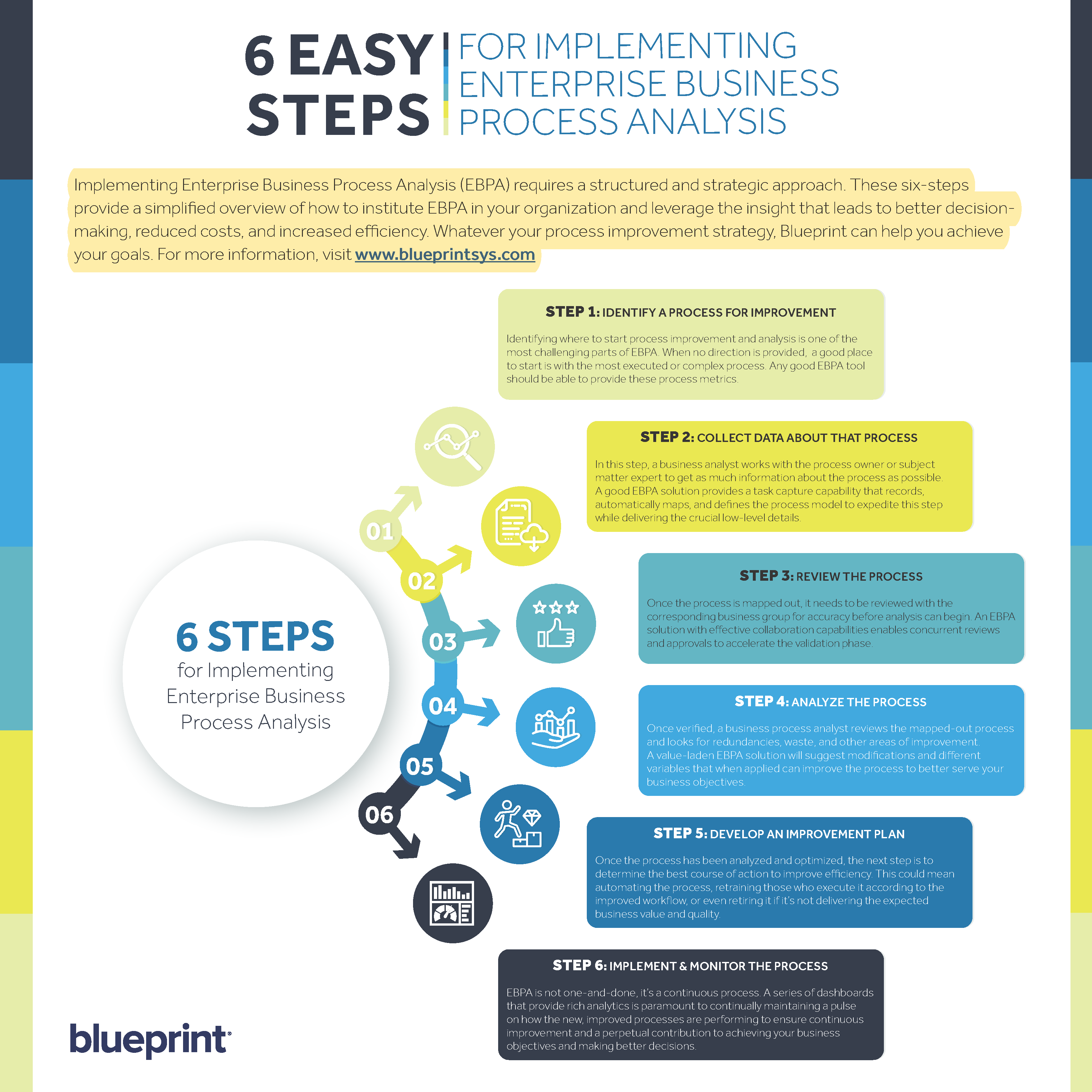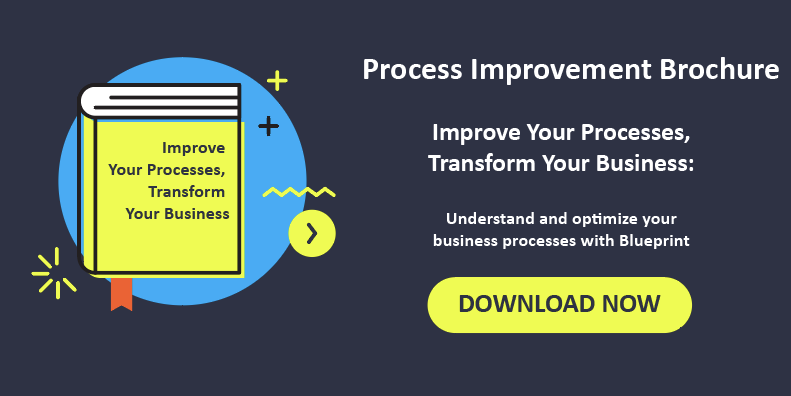What is EBPA (Enterprise Business Process Analysis)?
One of the biggest challenges for organizations is finding a way to make better business decisions. To meet that challenge head-on and overcome it, companies need to understand how their business runs today.
And that can only come by having a deep understanding of and ability to visualize the business processes at your company’s core. Enterprise Business Process Analysis (EBPA) is the business discipline that defines how to get that deep understanding so you can improve the way your business runs and make better decisions.
This article breaks down EBPA, defining what it is, how it differs from other business process management (BPM) approaches, what the benefits are, and more.
What is Enterprise Business Process Analysis (EBPA)?
Enterprise Business Process Analysis (EBPA) is a structured approach to analyzing how your organization does work and identifying ways to improve those underlying business processes.
The objective of EBPA Is to identify which processes are working well, what needs to be improved by zeroing in on waste and redundancies, creating a process improvement plan, and then executing that plan.
What are the benefits of Enterprise Business Process Analysis (EBPA)?
There are several key benefits to Enterprise Business Process Analysis.
At the highest level, EBPA allows you to understand how your company runs by defining, documenting, and visualizing all the business processes being executed.
The average company runs thousands of processes that can be manual, automated, outsourced, etc., over hundreds of systems that don’t always play nice together. That leaves much room for process redundancies, waste, and general inefficiencies to hide.
EBPA is the mechanism to identify and address those inefficiencies before deciding on the best downstream transformation of that process, whether it be retraining, automation, lo/no-code development, etc.
When considering specific results, Enterprise Business Process Analysis leads to greater efficiency, improved quality, cost reduction, and better decision-making.
What is the Difference Between Enterprise Business Process Analysis (EBPA) and Business Process Management (BPM)?
Business Process Management (BPM) is the broad term that refers to improving a business process by modeling it out, analyzing, and then measuring it.
Enterprise Business Process Analysis (EBPA) is much more holistic. It aims to visualize the entirety of the organization's business processes and how they interact across business units, teams, and even systems. EBPA is a way to envision the entirety of the enterprise, how value is being delivered and then finding ways to improve and enhance that value delivery.
What Methodology Does Enterprise Business Process Analysis (EBPA) Follow?
Traditionally, EBPA follows a Six Sigma or a Lean Six Sigma approach.
Six Sigma is a quantitative approach to process improvement with a set of quality controls to minimize errors and improve execution times.
Lean Six Sigma is a combination of Six Sigma and another process improvement approach known as Lean, which focuses on removing waste and optimizing the workflow while prioritizing the value delivered to customers.
Both methodologies originated in manufacturing; however, their application has extended to all processes regardless of function or industry.
What Structure/Steps does Enterprise Business Process Analysis (EBPA) Follow?
A simplified approach to Enterprise Business Process Analysis (EBPA) typically follows the following six steps:

- Identify a process for improvement
- Collect data about that process
- Review the process
- Analyze the process
- Develop an improvement plan
- Implement and monitor
Learn more: 6 Easy Steps to Implement Enterprise Business Process Analysis (EBPA)
Each step can be broken down into further steps. For example, during the analysis phase, processes are quantified, attributed value, and then assessed to determine the best improvement strategy.
The improvement strategy itself can then range from:
- Modernization – replatforming processes to modern technologies
- Optimization – improving efficiency and aligning with business goals
- Standardization – creating organization-wide process consistency and governance
- Automation – removing human error and freeing employees for higher-value work
When Should you Implement Enterprise Business Process Analysis (EBPA)?
The question for implementing EBPA shouldn’t be when; it should be how soon can you?
Companies have thousands of processes where waste, inefficiencies, and money being lost are hidden. Without the intention of sounding redundant, organizations everywhere are struggling to understand how their businesses operate.
Enterprise Business Process Analysis is the vehicle that enables the path to that understanding to make better business decisions and achieve your overarching objectives like reducing costs and increasing efficiency.
Who Manages Enterprise Business Process Analysis (EBPA)?
EBPA is a collaborative, cross-functional endeavor. While process analysts and process architects will be the primary owners, several other personas play an integral role in any EBPA efforts.
Process owners and subject matter experts are needed to help define and model the processes to be analyzed and improved.
Lines of business/business units and their decision-makers can often be the sponsors for EBPA and trigger the requests to have their processes analyzed, optimized, and transformed.
Additionally, IT is always core to any EBPA initiatives to vet the tools needed and provide insight, guidance, and validation as all business processes now interact with different applications and systems.
What Capabilities do Enterprise Business Process Analysis (EBPA) Tools Offer?
At a high level, EBPA tools should offer the capabilities that allow you to easily ingest and model processes with the ability to analyze those processes thoroughly. That means being able to quantify, attribute values, and run simulations on processes to determine the best improvement strategy.

Best-in-class EBPA solutions should also provide platform- and technology-agnostic outputs to facilitate the future state of your processes and drive transformative outputs. EBPA tools should allow you to export modernized, optimized, standardized, or automated processes to accelerate and improve downstream development initiatives like RPA, iPaaS, custom development, etc.
How Does Enterprise Business Process Analysis (EBPA) Facilitate Automation?
One of the main functions and benefits of EBPA is the ability to determine the best process improvement strategy after analysis.
Automation programs have difficulty identifying good process candidates to automate to fill their operational pipeline and scale automation. EBPA provides the tools and assessment capabilities needed to effectively identify if the best output for a process is automation. This analysis will tell you if the process can be executed quicker outside of manual hands, reduced errors and increased efficiency via automation.
A good EBPA solution will also provide the automated process in a format that can be synced with any of the leading RPA tools you might use to drive and improve automation development and delivery.
What Other Outputs Does Enterprise Business Process Analysis (EBPA) Facilitate?
EBPA essentially drives all aspects of your process improvement strategy, from modernization to optimization, standardization, and automation.
At a more granular level, Enterprise Business Process Analysis facilitates several downstream process improvement and transformation outputs such as:
- LCAP – Lo-code Application Development
- MXDP – Multi-Experience Development Platforms
- iPaaS – Integration Platform as a Service
- Custom Dev – Agile software development
For more information on EBPA and process improvement, see our brochure: Improve Your Processes, Transform Your Business.
Share this
Recent Stories

BPA vs. BPM: What’s the Difference?

4 Process Improvement Strategies: Modernize, Optimize, Standardize, Automate



